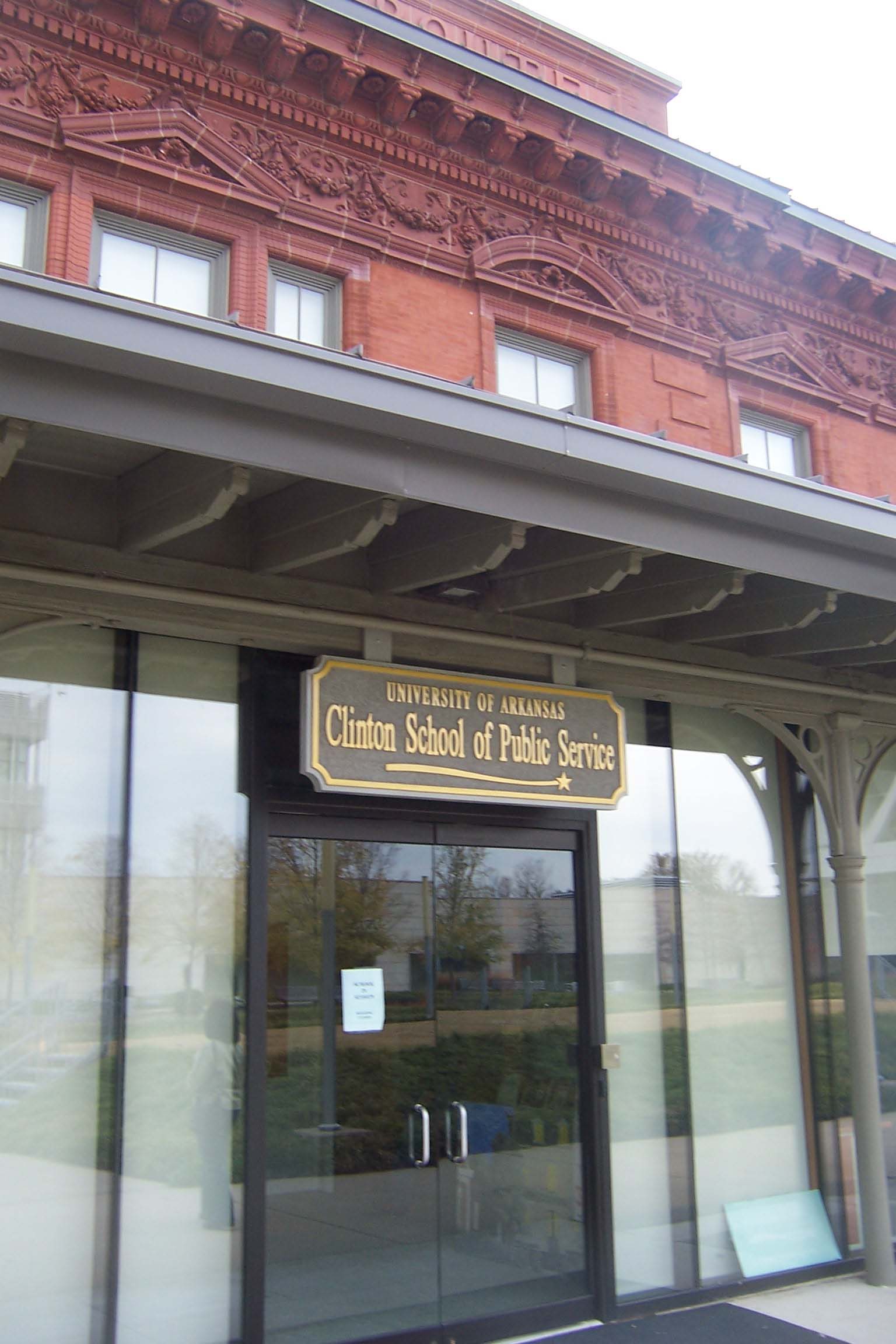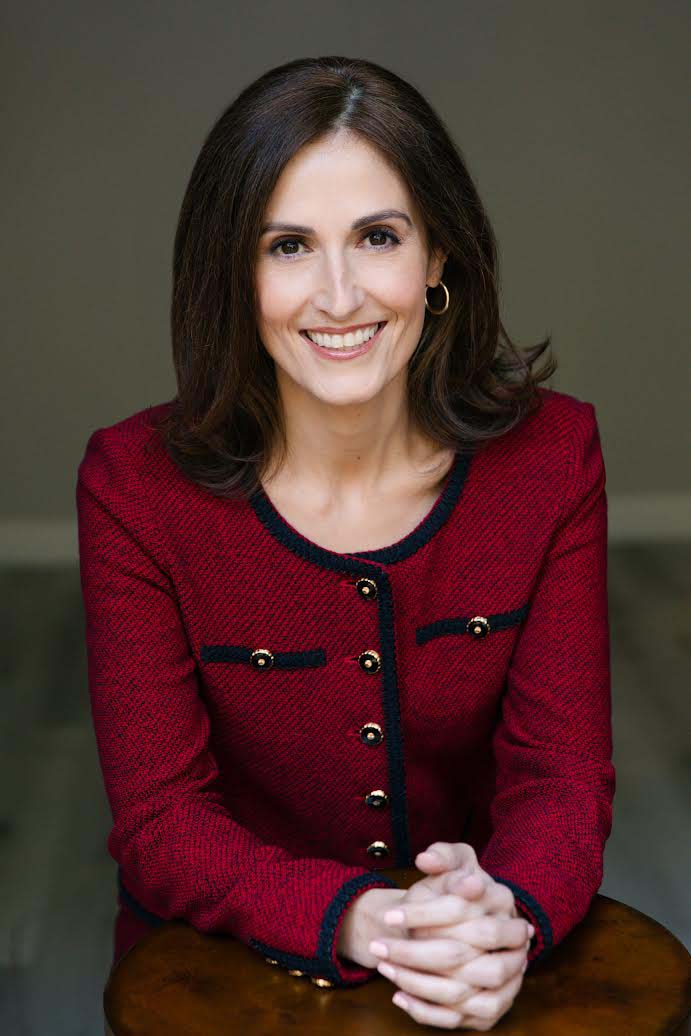UA Clinton School of Public Service bright with DeFrancesco Soto at the helm
September 25 - October 1, 2023
By Becca Bona
An academic at heart with a passion for finding those spaces in which the real world and classroom collide – Victoria DeFrancesco Soto aims to put the UA Clinton School of Public Service on the map. Since taking the reins as Dean in January of 2022, she continues to work toward her goal – to see the Clinton School progress, improve, and grow.
Originally from Arizona, DeFrancesco Soto pursued her love of politics as a student – graduating from the University of Arizona as an undergrad. She continued studying, landing at Duke University for her master’s and PhD.
Her accolades are extensive. She served as the Assistant Dean at the LBJ School of Public Affairs and lectured there, as well. She also taught at Northwestern University and Rutgers. She’s always been drawn to making an impact outside of the classroom, however, and she has served as an analyst for NBC News and Telemundo.
DeFrancesco Soto has already found her niche in the Natural State. She’s found headway with the lifeblood of the community – the people that call Arkansas home.
“There is something to southern hospitality,” DeFrancesco said, smiling, “People are just very warm and welcoming.”
DeFrancesco plans to marry that hospitality with public service – something she believes is invaluable to central Arkansas and beyond.
“Public service is about having a positive impact on a greater community,” she explained. “That community could be anywhere – your workplace, your university, the city where you live, your nation, the globe. [Public service] is figuring out how to have positive impact and how to have positive impact regardless of what you do.”
The Natural State and the Clinton School of Public Service
What drew the first Latina Dean to the Clinton School? The institution happens to marry all of DeFrancesco Soto’s passions – both theory and practice, with an added presidential prestige.
“I did my homework and, holy moly, this is what I’ve been wanting my whole life,” she said. “An institution that combines the real world and the classroom.” The fact that the Clinton School is a part of former President Clinton’s legacy was a bonus. “I think it is a prestigious feature, to be able to honor the living legacy of a president as a public servant,” she said.
The Clinton School’s curriculum is built on field service and provides students three different hands-on experiences in which they take what they learn in the classroom and apply them in a real-world context. The first is a group project known as Practicum. The second is called the International Public Service Project (IPSP), and typically takes place between the students first and second year of grad school. The third is the final project that students complete in a more independent vein known as their Capstone project.
The school provided the first Masters of Public Service in the country nearly 20 years ago. Part of the problem, at least from DeFrancesco’s point of view – is how much of a hidden gem the school is. She has spent countless hours immersing herself in various communities across the state to get a handle on where the school stands from a local point of view.
Her number one goal? To get the word out about the Clinton School and further explain this elusive concept of “field service” to stakeholders.
“Essentially, I’m on a 24/7 campaign,” she noted. Traveling from northwest back to central Arkansas and everywhere in between – she continues to traverse all over the state.
“I think people know about the Clinton school. They know it’s by the Presidential Library. We’re known for our speaker series, but people don’t necessarily know the impact that we have,” she said.
Part of this impact can be measured in hours spent with partner organizations. These organizations are paired with students for each project – Practicum, IPSP, and Capstone. Students – under faculty supervision – set out to solve real world problems for these partners, who often don’t have the resources to tackle on their own.
However, another part of the impact, DeFrancesco noted, is what the degree can do for students once they’ve graduated.
“We train our students to be like the Green Berets of leadership and impact. We have alumni who are doctors, documentary filmmakers, and entrepreneurs,” she explained. “Nowadays, people not only change jobs more frequently – they are changing sectors. Our degree was built to allow that portability.”
The core skillset of the curriculum includes program planning, evaluation, communication, and community engagement. Recently, data analysis was also added to the list.
“I want the school to be a seen as a resource for the community here in central Arkansas, but also have that understanding that the Clinton School is also a national resource in terms of attracting attention to this region,” DeFrancesco Soto said. “I think as we’re approaching our 20th anniversary, I’d want the community here to take a new look at the Clinton School and really be able to appreciate all of the impact we’ve had.”
Looking towards the future: Return on Impact
ROI – whether you’re talking about investment or impact – needs to be broken down from a Clinton School perspective. Sure, numbers are one way to do this, as DeFrancesco Soto said: “We’ve had over half a million hours of field service hours – half of that in the state of Arkansas itself.”
It’s also about taking the word apart and examining its meaning in light of a public service master’s degree.
“There is a rigorous process, a rigorous scaffolding that is entailed in having impact,” DeFrancesco Soto explained. “It’s similar to the business world. If you want to have a successful business, you don’t just go up and set up a shop. You have to do the research. You have to build the plan.”
Students at the Clinton School are given the tools to develop these skills through those field service components that have always been present in the curriculum.
“In addition to that, you also need practice,” DeFrancesco Soto explained. “I can teach you this from the readings and the lectures. But the beauty of the Clinton School is we’re teaching you this and we’re giving you the training wheels to go out and make an impact.”
Impact, also – is not simply tethered in good intentions.
“That doesn’t cut it,” she continued. “There is a rigorous methodology that then allows for return on impact. For me, the driving idea is that ROI. Whether that be return on investment, time, effort, capital – whatever it may be – to get a return on impact.”
DeFrancesco Soto hopes that stakeholders across the state will find a way to engage with the school. She sees it as an opportunity for them to find their own return on investment.
“If you invest in supporting the Clinton School, in supporting scholarships for our students, then that means that we can go out and do more good in the community,” she said. “But I’m biased. I think that investing in education and high impact education is extremely important and beneficial to the general good.”
One way DeFrancesco Soto hopes to help accomplish this as dean is to listen and communicate with as many people as possible. She essentially takes her open-door policy from the classroom to the community at-large.
“I want to go out, I want stakeholders to call on me and say, ‘Hey, can you come and speak to my club? Can you come and speak to my organization?’”
Since starting her work, she’s seen growth. “In terms of that higher education landscape,” she said, “we have been able to raise the rankings. We are recognized, we’re brought to the table. […] Because we do such incredible things here, I want recognition for it and for our students and for Arkansas.”
That traction has continued to spark DeFrancesco Soto’s passions for her job: “I’m excited about the growth. I’m excited about showing folks across the country about how darn cool we are.”
When not working, DeFrancesco Soto enjoys spending time with her husband and children. She can often be found enjoying the newly unveiled Arkansas Art Museum or finding new avenues to put the Clinton School on the map.




